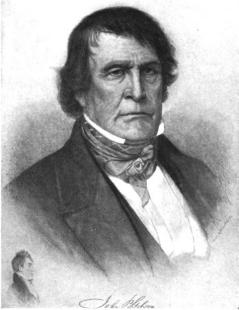The 19th decision in Phillips et al. (Simon’s Executors) v. Gratz, 2 Pen. & W. 412 (1831), by Justice John Bannister Gibson of the Pennsylvania Supreme Court (the other two justices did not participate), is notable for its ruling that the scruples of a Jewish man who refused to attend his trial because it was on his Sabbath did not provide a proper reason to postpone his case. The decision was issued long before the application of First Amendment protections to the states.
Judge said Jewish man had to attend trial on the Sabbath
Phillips’s attorneys had cited provisions relative to religion in both the Pennsylvania constitution and the First Amendment. By contrast, their opponents said that the state had not violated Phillips’s conscience because “there was no coercion to change his faith, or to alter his practice in pursuance of it.” Gibson sided with the latter views, writing, “The religious scruples of persons concerned with the administration of justice will receive all the indulgence that is compatible with the business of government; and had circumstances permitted it, this cause would not have been ordered for trial on the Jewish Sabbath. But when a continuance for conscience’ sake is claimed as a right, and at the expense of a term’s delay, the matter assumes a different aspect.”
Gibson, who is best known for expressing his objections to judicial review in Eakin v. Raub (1925), thought that “considerations of policy address themselves with propriety to the legislature, and not to a magistrate, whose course is prescribed, not by discretion, but rules already established.” In Gibson’s views, “there are no duties half so sacred as those which the citizen owes to the laws.”
Case set a precedent that free exercise does not include right of exemption from laws
Judge and legal scholar Michael W. McConnell, who thinks that Gibson’s decision may have been influenced by his own restrictive view of judicial review, says that this case was “the leading precedent in the thirteen original states prior to the Civil War for the proposition that free exercise does not include the right of exemption from generally applicable laws” (p. 1507). The potential significance of the case has been heightened by the U.S. Supreme Court in Employment Division, Department of Human Resources of Oregon v. Smith (1990), which takes a similar position.
John Vile is a professor of political science and dean of the Honors College at Middle Tennessee State University. He is co-editor of the Encyclopedia of the First Amendment. This article was originally published in 2009.

